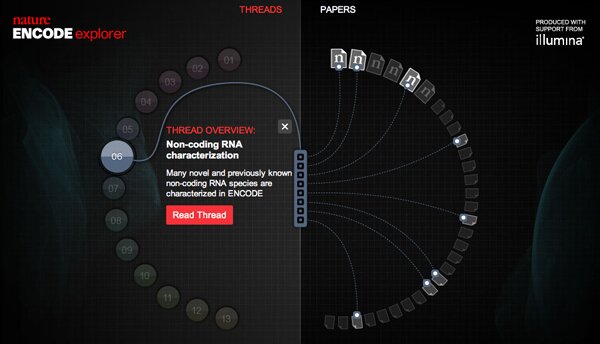
The ENCODE Project has this week released the results of its massive foray into exploring the function of the non-protein-coding regions of the human genome. This is a tremendous scientific achievement, and is receiving plenty of well-deserved press coverage; for particularly thorough summaries see Ed Yong’s excellent post at Discover and Brendan Maher at Nature.
I’m not going to spend time here recounting the project’s scientific merit – suffice it to say that the project’s analyses have already improved the way researchers are approaching the analysis of potential disease-causing genetic variants in non-coding regions, and will have an even greater impact over time. Instead, I want to highlight what a tremendous feat of scientific publication the project has achieved.
Continue reading ‘The ENCODE project: lessons for scientific publication’

 RSS
RSS Twitter
Twitter
Recent Comments